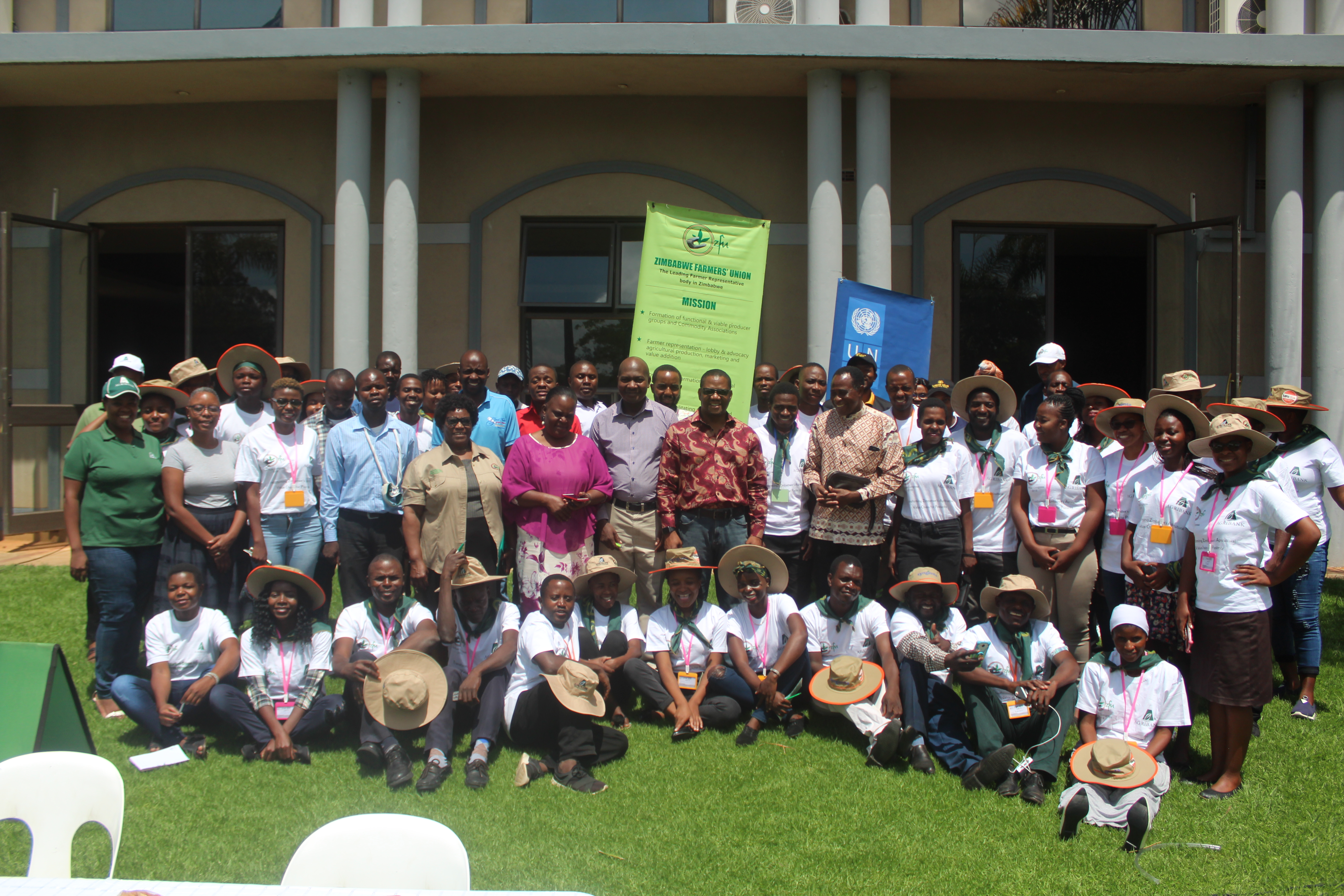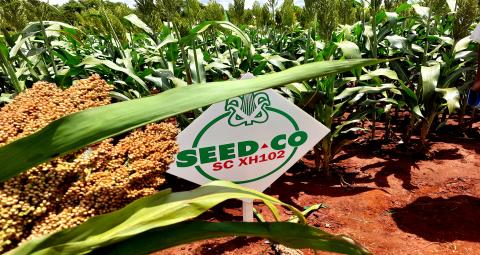
Agricultural Innovation
The need for innovation arises because of pressures that bear on agriculture due to various factors including population growth, the impact of climate change, the need to reduce greenhouse gas emissions in agriculture, rapid development of the emerging economies and growing instability associated with land, water, and energy shortages. They act as triggers for innovation to allow agriculture to remain productive, competitive, and sustainable Despite these pressures, food and other agricultural produce must continue to be produced to meet demand.
Innovation is specifically the application of new knowledge to productive or organizational processes. It comes about when society takes ownership of knowledge, ideas, practices, and technologies, translating them into a change that is useful and beneficial in productive or organizational life. A novel idea implemented in a particular way can be considered an innovation if it is new in the context, even though it may not be new to the world . Innovation is the implementation of something new or improved (whether technology or otherwise) in products (goods or services), processes, marketing, or organizational methods. In other words, it means applying ideas, knowledge or practices that are new to a particular context with the purpose of creating positive change that will provide a way to meet needs, take on challenges or seize opportunities. Such novelties and useful changes could be substantial (a large change or improvement) or cumulative (small changes that together produce a significant improvement) .
A basic component of favourable conditions to foster innovation is the existence of agricultural policies that eliminate market distortions. Equally important are policies for science, technology and innovation, intellectual property rights policies, simplification of regulations whenever possible, and the development of financial and technical services that support innovation processes along the links of the value chains.
The field of digital innovation in agriculture is advancing at breakneck speed and chances of being left behind are huge. An example is the use of “connected farmer platforms” enabling digital modules that allow farmers to access high-resolution satellite images of land that can be measured, manipulated, and mapped through geographic information systems (GIS) programs. With the growing need for the implementation of precision agriculture, there is an increasing number of platforms that can provide high-speed data analytics which inform, from a data perspective, how we can better manage farmland and livestock. In precision agriculture, farmers can save on time, labour, and resource costs when they know exactly where to direct their energy and apply their inputs, and it takes away the unnecessary wastage of blanket applications that assume a uniform distribution of soil moisture and nutrients. Digital data from observations, sensors, satellites images, and weather reports can be matched to produce quick and actionable insights during soil preparation, planting, harvesting, and storage.
Value Creation
The value creation concept is described as something created along the vertical chain of suppliers, firms, and buyers. In this model, value is created by each member of the chain, and, at the same time, each member is interested in capturing as much value as possible. How to capture value becomes the core question for an individual member of the vertical chain, and the way to achieve it is discussed in the business strategy of every firm.
Agricultural entrepreneurship, innovation, and rural development are all intimately tied to business value creation. Discussions about value in the agricultural literature are mostly related to the specific term of ‘value-added agriculture'. Value-adding is economically adding value to a product by changing its current place, time, and form to characteristics more preferred in the marketplace.
Value should be conceptualised in broader economic, social, and environmental dimensions, broken down into value creation business activities. These value creation perspectives include collaboration, diversification, communication, knowledge, production, funding, policies, entrepreneurism, and inclusiveness.
Diversification can allow farmers to achieve financial sustainability in their business and increase their own well-being.
Certification as part of communication leads to an information label on the product. Certification ensures the safety and traceability of agricultural products from producer to consumer. It enhances consumer confidence and trust and enables the creation of value for a producer.
Value should be conceptualised in broader economic, social, and environmental dimensions, broken down into value creation business activities. These value creation perspectives include collaboration, diversification, communication, knowledge, production, funding, policies, entrepreneurism, and inclusiveness.
Knowledge is a key factor in value creation. Studies have shown that a better educated and trained farm population achieved better economic performance.
Precision agriculture, a production value creating factor, is a way to create economic and environmental value. It allows chemicals to be used more efficiently for example, providing cost minimization and environmental protection.
Value creation in agriculture requires access to funding and investments, which is crucial for development of agricultural enterprises. The capital intensity of the sector requires major initial financial input.
Conducive government policies can promote value creation through long-term economic success due to favourable conditions for agriculture. In addition, the market orientation of agricultural producers and the whole value chain can be enhanced by corresponding supportive regulations.
Agricultural entrepreneurs also create value by using resources in creative ways, including for example agro-tourism.
In the African context, inclusive supply chains can lead to transformation of smallholders into commercially oriented enterprises enhancing rural development and improving food security.
Justification
Zimbabwe has a youthful population. As much as 53.6% of the population is below 20 years while 62.9% of the population is below 24 years. Of those below 24 years, 31.7% are females while 31.2% are males.
According to the 2017 poverty report, urban unemployment is much higher for the 15-34 youth age group than it is for the rural youth age group. Youth in urban areas had an average of 34% unemployment as compared to an average of 5% unemployment in rural areas. The unemployment situation is particularly worse for female youths, with one in five being unemployed. Despite these levels of unemployment, and the potential for employment in the agricultural sector, youths still shun employment in agriculture.
Science, Technology, and Innovation are pivotal to Zimbabwe’s development. The second Science, Technology and Innovation Policy released in 2012 underscores the importance of this sector to all sectors of the economy. Information Communication Technology (ICT) remains one of Zimbabwe’s fastest growing sectors anchored by rapid technological development and competition. There is potential for agriculture to benefit from the expanding ICT data network and the increased cell phone ownership in the country. Youths in agriculture stand to benefit more as they are more tech savvy than their older counterparts. They are therefore more prone to adopt and/or create agricultural ICT based innovations faster than older farmers.
The need to exploit the tech savvy youthful Zimbabwean population, high levels of unemployment and the policy bias towards ICT innovation and development, justified the 2022 edition of the ZFU Youth Summit theme titled “Powered by Innovation Driven by Value Creation”. The Youth Summit will encourage youths to take up agriculture as a rewarding career option through exposure to successful youth agricultural entrepreneurs, motivational presentations, and awareness to existing agricultural innovations. In addition, the youths will learn the broader concept of value creation in agriculture, going beyond monetary value-addition to include economic, environmental, and socially sustainable value creation.
Youth Summit Objectives
1. To promote the participation of youths in agriculture through the development of innovative agricultural solutions and value creation
2. To increase youths uptake of existing innovative agritech business solutions (kurima Mari, Farm Hut, etc)
3. To create an innovation platform for youths in agriculture.
Registration
Registration fees: $30.00 deposited in the following bank account on or before the 18th of October 2022. The registration fees will cover your attendance, teas, and lunch. Participants will cover their own accommodation and travel costs. Please register early as available space is limited.
For enquiries, submission of proof of payment and further information please contact Ms Christina Makumbirofa email: christinamakumbirofa@gmail.com cell: +263 774 435429
For online registration, click the link below ZYAS 2022
Registration Form ZYAS 2022 Registration Form (humanitarianresponse.info)




